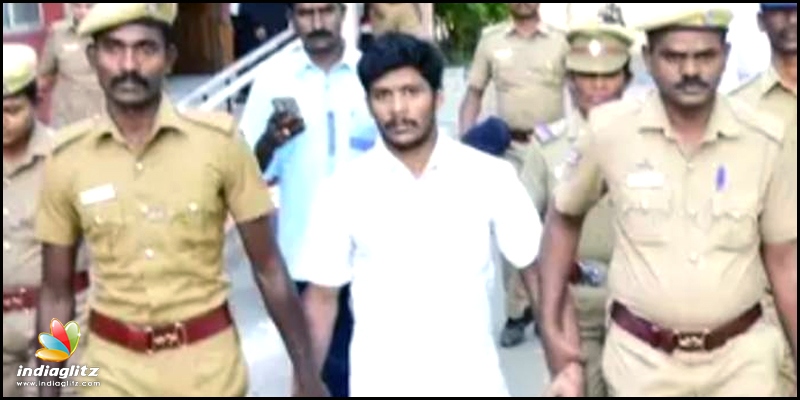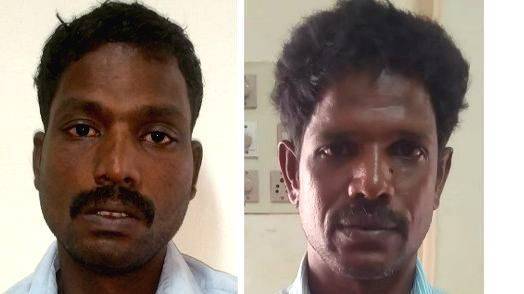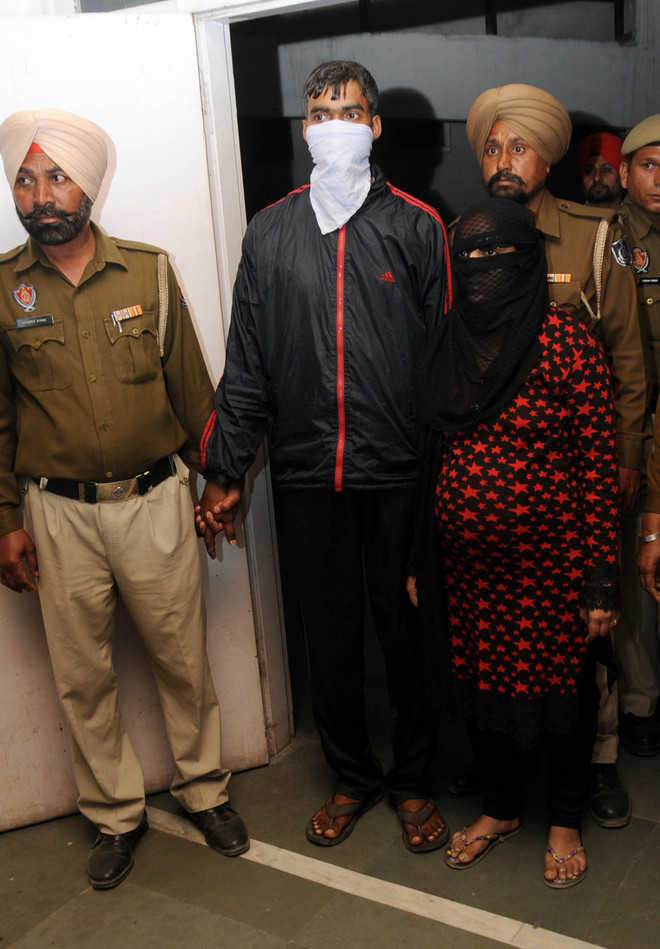By Nikita Doval
Thursday, May 30, 2019
Freed by the Supreme Court after 16 years spent on death row for a crime they did not commit, five men are desperately trying to rebuild their lives. More than a cause for celebration, their acquittal is reason to ask: how many more are wasting away in our jails?
His hands, they said, held down a girl as she was raped and then went to work battering his victim and her family to death. Rajya Appa Shinde holds up his left hand, marked by newly-formed calluses on his palm. “This is the hand of a man who works hard, always has,” he says to anyone who is willing to listen. “It is also the hand of a man who has been treated unfairly.”
Freed after 16 years on the death row, Rajya has found work digging ditches in Maharashtra’s Devgarh for the municipal corporation. He’s been trying, too, to rebuild the threads of his life: make an Aadhaar card, open a bank account, find a wife.
Bitterness, though, clings to his body, like chains once did.
“I am out of prison, yes, but what do I have? Ditches to dig, and a reputation that means no one is willing to marry their daughter to me. I am ready to start a second time over, but the world may not allow it.”
THE KILLINGS
Trambak Satote and his family—daughter Savita, sons Sandeep, Shrikant and Manoj, wife Vimla Devi and nephew Bharat More—had finished their dinner, and were chatting inside a makeshift hut in a guava orchard in Nashik’s Belatgavan on the night of June 5, 2003. Late that night, a group of men forced their way into the hut, robbed the family and left after beating the men into submission.
They came back again, this time to gang-rape and murder Savita. Four of the five men of the family were beaten to death. Vimla Devi and her son Manoj were the only survivors. The killings provoked considerable public outrage—and the local police were under enormous pressure to deliver justice.
Rajya was, he recalls, working as a daily-wage labourer in Umbargaon, Gujarat, when the police came looking for him. Six other people were arrested from Bhokardhan town in Jalna district, all from the same family. Two were let off but the remaining five—Rajya along with Raju Mhasu Shinde, Ambadas Laxman Shinde, Ankush Maruti Shinde and Bapu Appa Shinde—were not so lucky. After being interrogated and tortured by the police they found themselves in Nashik Central Jail, charged with murder. A sixth person, Suresh, was arrested a year later.
For more than a decade, the case made its way up endless stairs of the legal process, ending with the Supreme Court confirming the death penalty for five—Ankush was a juvenile who was let off in 2012. Then, something incredible happened: on March 5, the Supreme Court reversed its own judgment, and acquitted the men it had put on death row. “It is rare for someone sentenced to death to be found innocent after the Supreme Court had itself confirmed the death penalty,” says Yug Mohit Chaudhry, lawyer for the group, and a leading campaigner against the death penalty. “This is an odd case where the system righted itself.”
FLAWED INVESTIGATION
From the evidence, it’s clear the case should never have gone to trial in the first place. The prosecution’s entire case hinged on the eyewitness testimony of Vimla Devi and her son—who, as Chaudhary argued in his written submission, had not been able to describe the accused to the police. The two witnesses could not describe the identifying features of the perpetrators; they had been unable to even recognise their clothes. The defence also noted that Vimla Devi had identified an entirely different set of people as the perpetrators when photographs of suspects were shown to her soon after the murder.
Police investigators, though, had decided the men had carried out the killing—and were determined to beat the evidence out of them. “In the initial days when we were being beaten up," Rajya recalls, “I would ask them, ‘what have I done?’ And they would say, ‘you know’ and that was that.” Prosecutors submitted no DNA evidence—samples were taken but the results were never submitted—nor produced any worthwhile forensic evidence tying the accused to the killings.
In spite of these holes in the case, the trial court’s guilty verdict sentence was upheld by the Bombay High Court—though it reduced the sentence for three of them to life imprisonment. Then, the Supreme Court upheld the conviction—and enhanced the sentence to death. “The entire case was based only on Vimla Devi’s testimony,” says Chaudhry, “but it is contradicted by a great deal of evidence, and corroborated by very little. Coming up with these arguments was not rocket science; this was, in some ways, an easy case. But you needed someone to listen objectively and honestly.” In its judgment, the Supreme Court has awarded the acquitted men compensation of Rs 5 lakh for their sixteen years of wrongful incarceration, and ordered an inquiry into the conduct of the investigation. That’s small consolation though—and doesn’t go anywhere near answering the troubling issues the case raises about the administration of justice in India.
USUAL SUSPECTS
Institutionalised bias and blindness guided the course of the investigation into the Belatgavan murders. Section 93 of the chapter on Preventive Action in the Bombay Police Manual of 1959 is devoted to “wandering gangs.” It states that special surveillance must be kept over all nomadic communities and “whenever suspicious persons from such communities are found at or near a village”, the police must be informed. The Police Manual’s language draws on the Criminal Tribes Act, passed by Imperial Britain in 1871, targeted most of India’s nomadic communities, hunters and forest dwellers. There were several reasons, political as well as social, behind the inclusion of the tribes in this list—among them colonial fears that those beyond the control of empire might rebel against it.
Even though the so-called criminal tribes were denotified by the Indian government in 1952, the stigma continues. It is these tribes that the manual refers to as “wandering gangs”. The Shindes are Vadars, a subset of the Pardhi tribe. Traditionally they were hunters but now for generations they have described stone breaking, road laying and ditch digging as their occupation. Their lifestyle is no longer peripatetic. In fact, the Shindes have lived in Bokhardhan for over five generations now, but little else has changed. The only educated members of the clan are the three daughters of Raju Mhasu Shinde, who were toddlers when he was arrested. His wife Rani realised early on that it was their lack of education and complete destitution that had landed her husband and his clan in this situation. Her daughters would do better.
“There is no question that it was the Shinde’s caste, class and ethnicity that played a role in them ending up on death row,” says Reena Mary George of the Development Studies Department at the University of Vienna. “Police in most states keep a record of the so-called “Denotified Tribes” even today and pick them up first for any unsolved crimes in their areas.” Framing the Shindes was relatively easy: there were previous cases against them, for petty crimes like picking pockets, which meant they had few friends in the community. Their lack of social status and education meant they would be easy to implicate. George met the Shindes in 2009 when she was researching a landmark study, Death Penalty: A Human Rights Perspective, and had been given permission to talk to the prisoners on death row. The objective of the study was the impact of death penalty on the social, mental and physical state of the inmate.
In fact, it was George who realised that Ankush was a juvenile when he was sentenced. The judicial ball was set rolling and he was released in 2012. Her case study notes about Ankush record that “he has panic problems…hardly sleeps for half an hour…nervous, tensed and restless…confused at times on why this happened to him.” Death row inmates in India are kept in solitary confinement. He describes his cell—“small, no ventilation, very hot”—easily but struggles when asked to remember those days: “I was living but I was dead.” Even today the sight of a police man makes him nervous. After his release, he says the local police still kept showing up at his doorstep harassing him and his family. Rajya claims not to fear the police, but his life is filled with rituals to suggest the scars run deep. He takes photographs recording his day so that if the law comes calling again he is ready with his alibi.
SCARRED LIVES
All the Shindes have been marked by their 16 years on death row, but each in a different way. Ankush appears to have found a wellspring of inner calm; Rajya rages. Raju was the last to be released, as he had another case pending against him. On the day he came home, his wife Rani had prepared a feast for him from their limited means. “Sheera, bhaji, I made everything. He took one look at the food and said I’m not hungry. He didn’t eat for four days,” she says. Living at his mother-in-law’s house, where Rani has brought him for a change of scenery, Raju “sits and stares in the distance, doesn’t recognise people, doesn’t talk,” she says. His own mother and sister passed away while he was in prison.
Every single rupee matters to the desperately poor Shinde families, meaning they had little contact with the men while they were in prison. “Every visit cost up to Rs 2,000,” Rani recalls. “Where was I supposed to get that kind of money from?” “And even when I would manage to go, once in a couple of months, I would be made to wait for hours before I was allowed to meet him for fifteen minutes or so,” she remembers. Raju says that everyone advises him to “not think so much. But you tell me, how does one stop the clamour of thoughts?” The most articulate—and aggressive—of the men, Ambadas Shinde isn’t willing to accept he has finally received justice. “What is Rs 5 lakh in this day and age? They should have calculated our wages loss for 16 years, adjusted to inflation and then rewarded compensation.”
Rajya, Ankush and Raju are just a few months apart and were shy of 20 when arrested. Now they are in their mid-thirties, at the peak of their prime, some would say except for the sixteen years behind bars that have left them scarred. In his fifties, Bapu (who lives in Devgarh) is the oldest with Ambadas and Suresh bridging the gap. Little was done in prison to prepare the Shindes for the lives that now lay ahead of them. Prisoners on death row are not allowed to work; they have, thus, been unable to save even a small amount of money, or learn skills that might be of use to them. There is no infrastructure at all to support their reintegration into society, nor to deal with the brutal psychological scars sixteen years of wrongful incarceration on death row have inflicted.
In India, the death penalty is meant for the “rarest of rare” cases. But studies show it is been handed out with disturbing frequency. A report by the National Law University reveals that trial courts pronounced 162 death sentences in 2018, the highest since 2000. As of December 31, 2018, 426 people are on death row in the country. More than 70% of them are from lower castes and religious minorities. Perhaps most importantly, the Shinde case demonstrates just how easily grave miscarriages of justice elude judicial scrutiny of the appellate judiciary. The acquittal of the six men is not a cause for celebration but rather the time to ask the disturbing question: how many others like them are wasting away in our jails?



![Solitary Confinement Of Death Convict Prior To Rejection Of Mercy Petition Palpably Illegal: SC [Read Judgment]](https://www.livelaw.in/h-upload/2019/04/17/360055-nv-ramana-mohan-m-shantanagoudar-abdul-nazeer.jpg)
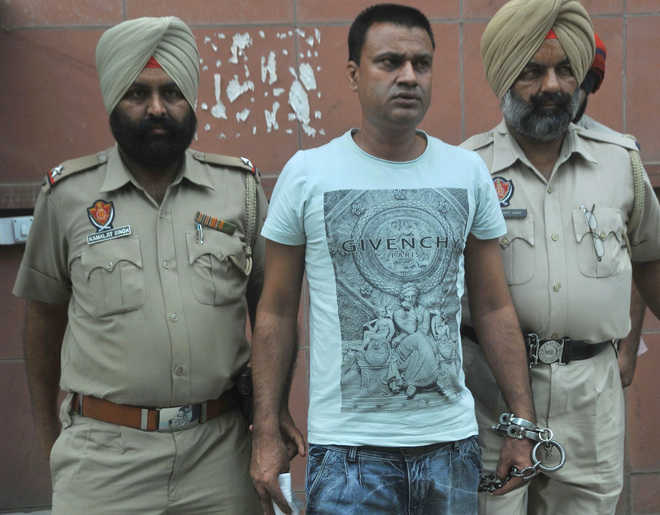
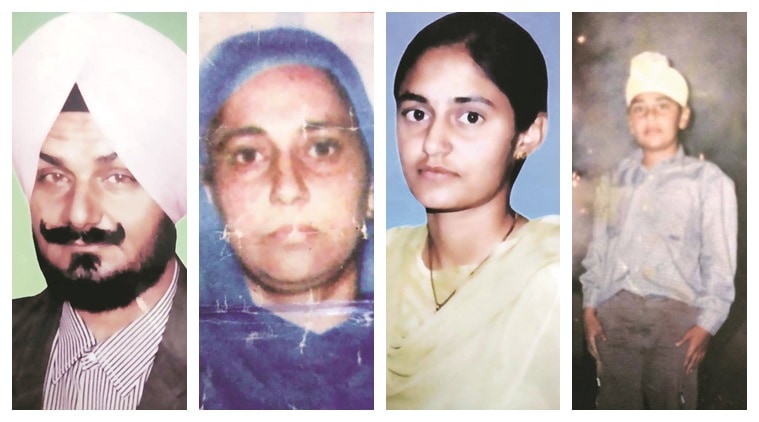
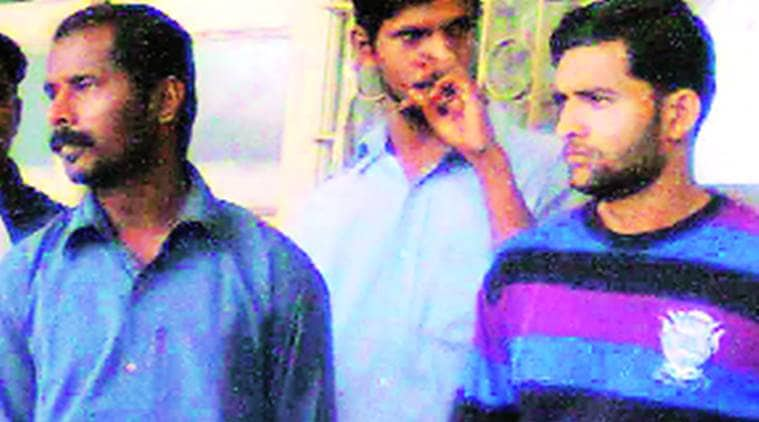
![Breaking: Post Conviction Mental Illness Is A Mitigating Factor To Commute Death Sentence :SC [Read Judgment]](https://www.livelaw.in/h-upload/2019/03/08/358946-justice-nv-ramana-justice-mohan-m-shantanagoudar-justice-indira-banerjee.jpg)
